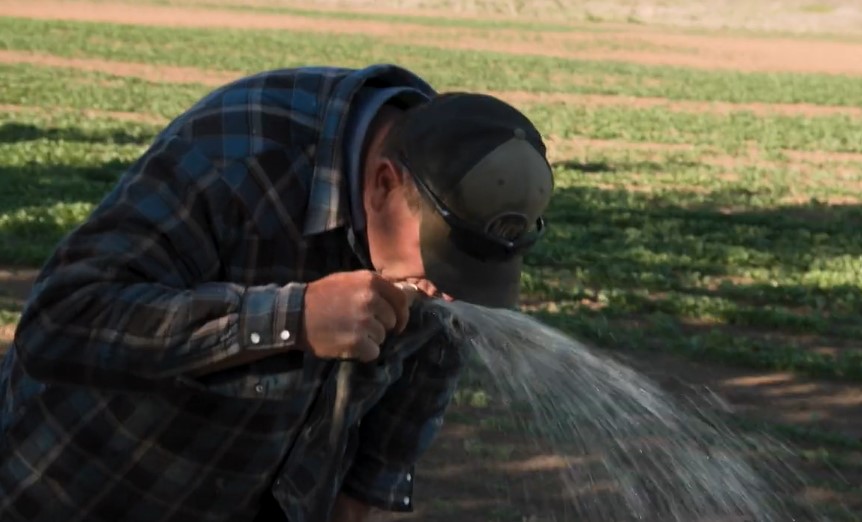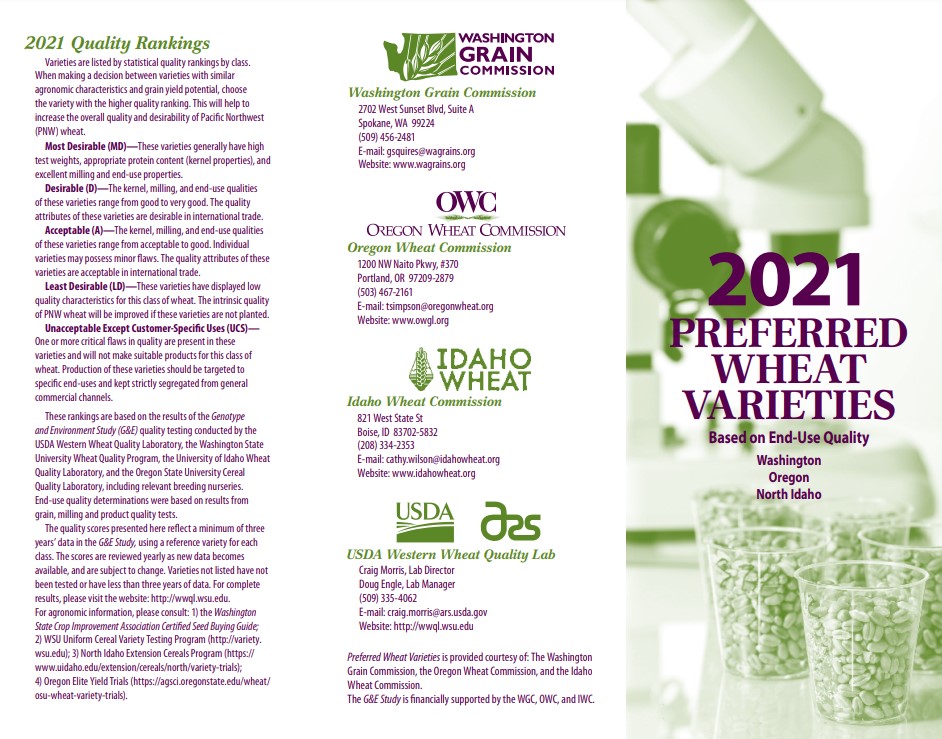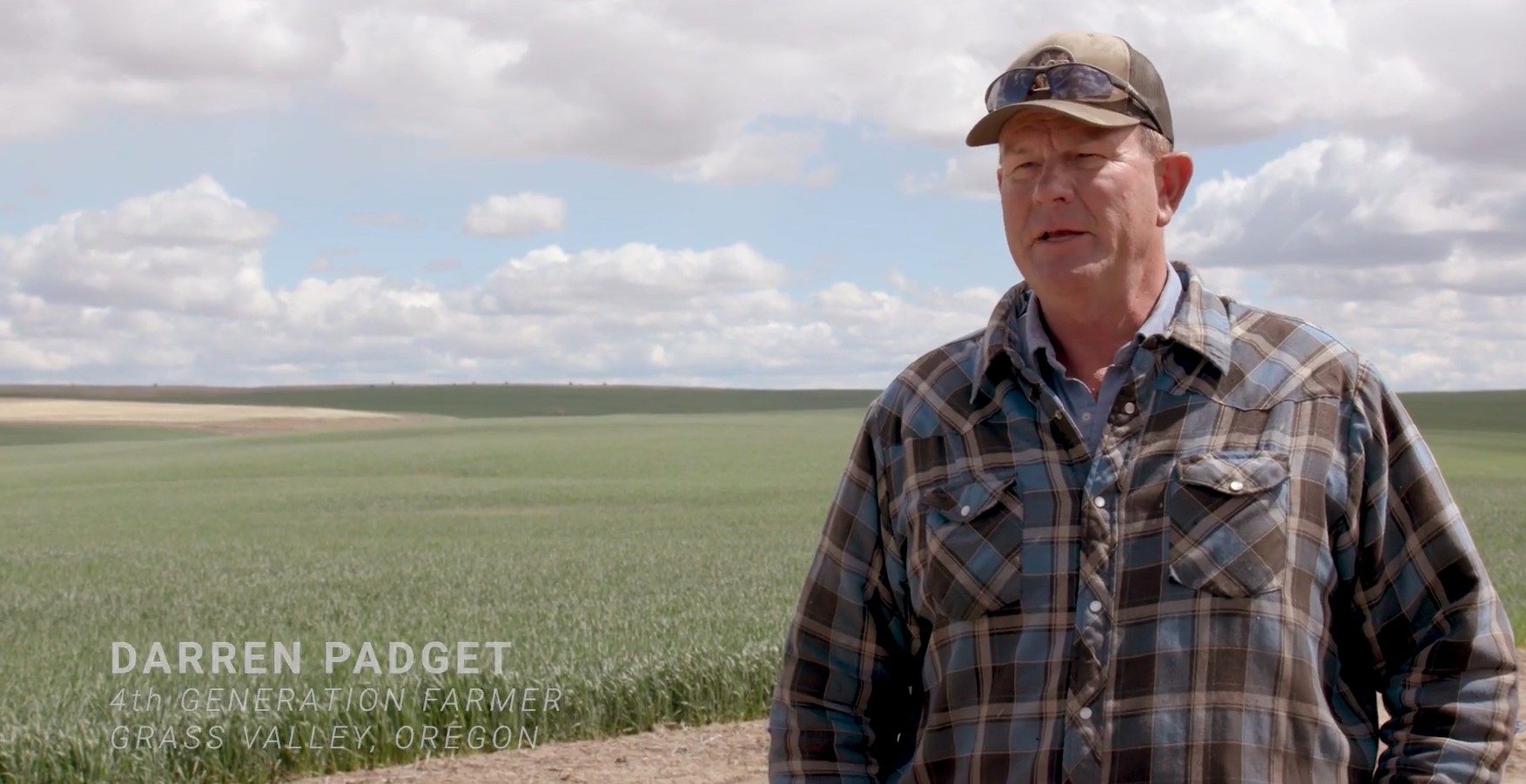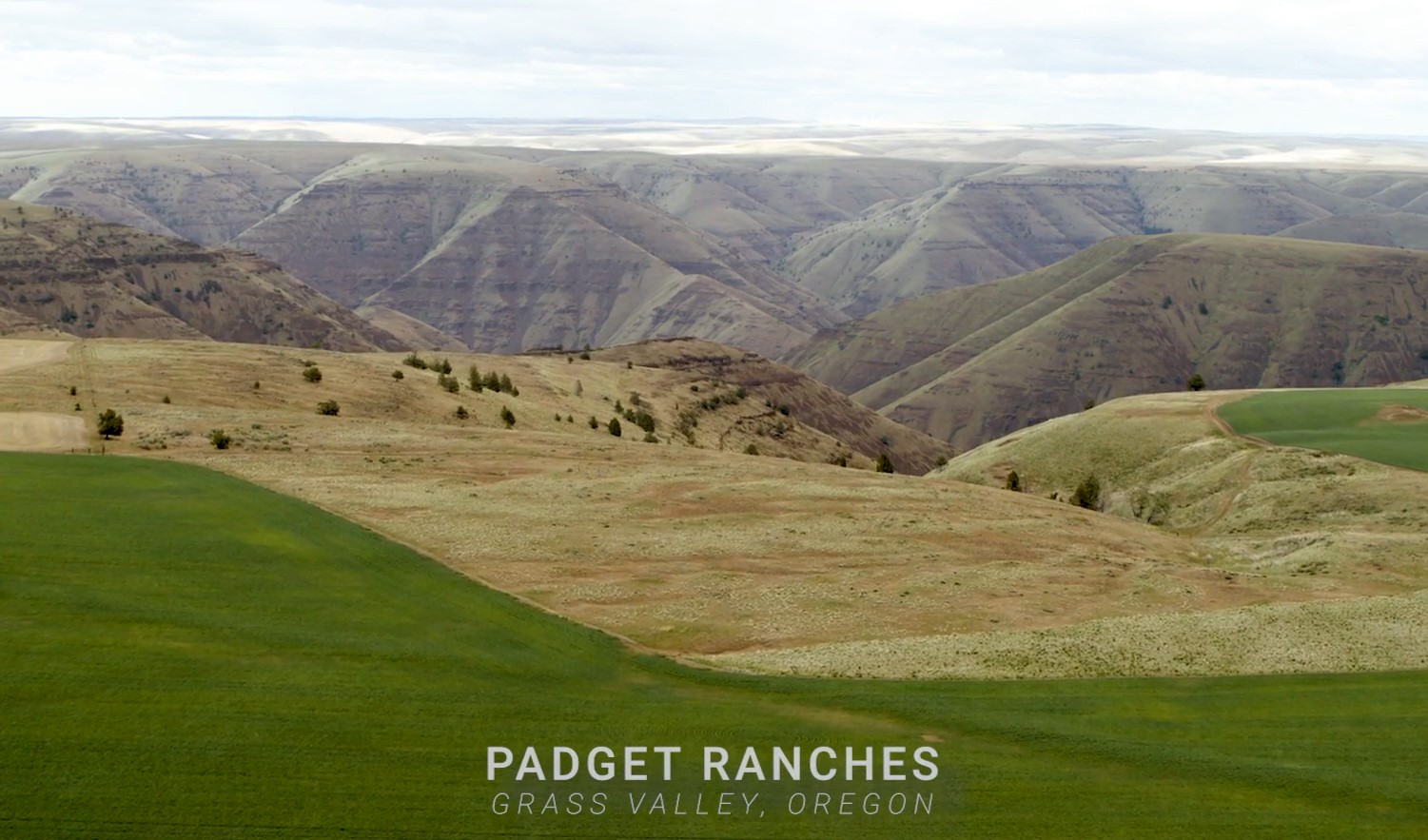In 2021, the U.S. Wheat Associates (USW) team in Beijing asked then-Chairman and Oregon wheat farmer Darren Padget to record a video message to Chinese milling and trading managers participating in a USW-sponsored “Contracting for Wheat Value” seminar.
The USW team wanted to show customers the important things U.S. farmers do every day to produce more and better wheat with less impact on the environment. Chairman Padget took the challenge to heart and spent an entire spring day walking the Chinese team through his operation to tell his farm’s sustainability story.
USW is sharing that story here with a wider audience that is increasing interested in learning more about sustainable food production.
Better Soil
Joined by his son Logan and his father Dale — partners in Padget Ranches — Darren talked in his video presentation about the effort to improve the soil in which they grow high quality soft white wheat.
“From when my father came to farm … things have changed quite drastically,” Darren said. “Taking care of the land and making sure it is sustainable is very important to us as we move forward. We used to till the soil heavily with a moldboard plow … it took a lot of time, a lot of fuel, and a lot of resources. Now, we do ‘direct seeding,’ which means the stubble in the field stays intact, which builds our soil organic matter and is less susceptible to erosion. It has been a big change. We have adopted the technology, and it seems to be the best answer to make sure this farm is here for many generations to come.”

Logan Padget is the fifth generation of his family to farm in this dry north-central Oregon region just south of the Columbia River. He has embraced precision agricultural technology. In the video, he talks about the efficiency of the farm’s crop protection product application equipment.
Precision Applications
“This machine is almost as late and great as you can get on technology,” Logan said. “It is GPS-controlled. Once I make the first pass on a field, the GPS can perfectly mimic that line across the field with just one-third of a meter of overlap. That is better than anybody could drive by hand. There’s also section control through the GPS, so if you’re coming across at an angle, each section will shut off to avoid double spraying, which saves us money. It also means fewer chemicals applied to the crop. It’s just a win-win all the way around.”
Better Quality Wheat
Darren also described how farmers are reaching beyond their own fields to help improve the functional quality of the milling wheat they grow for overseas and domestic consumption. He showed a “Preferred Variety List” that ranks public and commercial wheat varieties by desirability of quality characteristics based on three years of data. The list is developed by the state wheat commissions in Oregon, Washington and Idaho, which are directed by farmers who fund commission activities (including membership in USW).

We invite you to view the entire video below.



